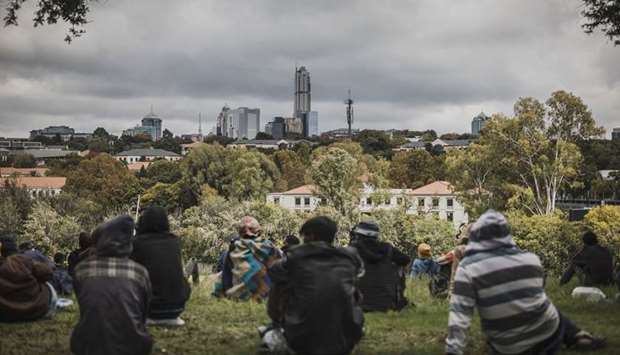Sub-Saharan Africa will suffer its first recession in 25 years as the coronavirus pandemic brings economies to a halt and disrupts world trade, the World Bank said.
Gross domestic product in the region will probably contract 2.1%-5.1% in 2020, compared with 2.4% growth a year earlier, the Washington-based lender said in an e-mailed copy of its Africa Pulse report yesterday. “The Covid-19 pandemic is testing the limits of societies and economies across the world, and African countries are likely to be hit particularly hard,” Hafez Ghanem, World Bank Vice President for Africa, said in a statement accompanying the report.
The growth downgrade is based on a sharp decline in output in key trading partners, such as China and the euro area, falling commodity prices, reduced tourism, and measures taken to contain the virus, the World Bank said. It estimates the virus outbreak will cost Sub-Saharan Africa $37bn to $79bn as a result of disruptions to trade and value chains.
African countries have 10,692 confirmed cases of the Covid-19 virus to date, with 535 deaths and 1,096 recoveries, according to data compiled by the Africa Centres for Disease Control and Prevention.
The pandemic will have a substantial impact on food production and could lead to a food security crisis in the region. Agricultural production is likely to decline by 2.6%, and as much as 7% with trade blockages. Food imports could tumble as much as 25% on higher transaction costs and reduced domestic demand, according to the Washington-based lender.
Sluggish growth in the region’s three biggest economies – Nigeria, South Africa and Angola – at a time when oil prices and other commodities have declined will lead to a sharp fall in economic growth in those countries that will impact the rest of the region, the World Bank said.
Oil-exporting countries will also be hit hard and growth is likely to decline substantially in the West African regional economic bloc known as Ecowas, and the West African Economic Community, it said.
The lender has made $160bn available to respond to the crisis within the next 15 months and set up set up a $14bn “fast-track” facility.
“We are rallying all possible resources to help countries meet people’s immediate health and survival needs while also safeguarding livelihoods and jobs in the longer term – including calling for a standstill on official bilateral debt service payments,” Ghanem said.

The skyline of the rich district of Sandton is seen as a group of homeless persons gather in Innesfree Park in Johannesburg, yesterday. The pandemic will have a substantial impact on food production and could lead to a food security crisis in the region.
